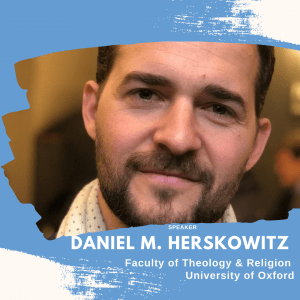Register for the Book talk, Heidegger and His Jewish Reception, Lectured by Daniel M. Herskowitz (Oxford University)
In this book, Daniel Herskowitz examines the rich, intense, and persistent Jewish engagement with one of the most important and controversial modern philosophers, Martin Heidegger. Contextualizing this encounter within wider intellectual, cultural, and political contexts, he outlines the main patterns and the diverse Jewish responses to Heidegger. Herskowitz shows that through a dialectic of attraction and repulsion, Jewish thinkers developed a version of Jewishness that sought to offer the way out of the overall crisis plaguing their world, which was embodied, as they saw it, in Heidegger’s life and thought. Neither turning a blind eye to Heidegger’s anti-Semitism nor using it as an excuse for ignoring his philosophy, they wrestled with his existential analytic and what they took to be its religious, ethical, and political failings. Ironically, Heidegger’s thought proved itself to be fertile ground for re-conceptualizing what it means to be Jewish in the modern world.
March 21, 2022, 3:45 pm-5 pm (on Zoom) You can register for this meeting here:
Dr. Daniel M. Herskowitz is a British Academy Postdoctoral Fellow at the Faculty of Theology and Religion, working on the research project ‘Jewish Existentialism and the Legacy of Martin Luther’. He was previously a Career Research Fellow in Jewish Studies at Wolfson College and a postdoctoral fellow at the Religion Department at Columbia University, NY. Dr. Herskowitz is the author of over twenty studies on modern philosophy, modern Jewish thought, Jewish-Christian relations, political theology, secularization, and nationalism. His first book, Heidegger and His Jewish Reception (Cambridge University Press, 2021) was awarded the 2021 Salo W. and Jeannette M. Baron Young Scholars Award for Scholarly Excellence. His essay “Between Exclusion and Intersection: Heidegger’s Philosophy and Jewish Volkism” was the winner of the Leo Baeck Year Book Essay Prize for 2020.


